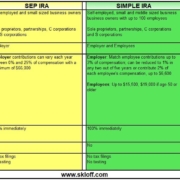Shared Traditional Versus Shared Hybrid Life and Long Term Care Insurance – Which Is Better? – Long Term Care University

Long Term Care University – Question of the Month – 08/15/23
By Aaron Skloff, AIF, CFA, MBA
Q: We read the Long Term Care University article ‘Traditional Versus Hybrid Life and Long Term Care Insurance’. Some of the long term care insurance policies we are researching have shared care benefits. What is the difference between Shared Traditional versus Shared Hybrid Life and Long Term Care (LTC) Insurance, and which is better?
The Problem – You or Your Partner Need More Care than Your Individual Policy Covers
Most long term care insurance policies are designed as individual policies that insure one person. Unfortunately, you or your partner may need more care than your individual policy covers.
Click Here for Your Long Term Care Insurance Quotes

The Solution – Shared Care Benefit Policy
The shared care benefit policy provides you the ability to utilize your spouse’s or partner’s benefits when your own policy benefits have been exhausted, establishes a third pool of money either of you can access or provides an unlimited amount of care.
Shared Traditional versus Shared Hybrid Life and Long Term Care Insurance
With a Shared Traditional Long Term Care Insurance policy or policies, you pay a non-guaranteed premium each year until you receive care; at which point your premiums are waived. Like a homeowners insurance policy: you may pay a non-guaranteed premium for the rest of your life, you may never have a claim and never receive anything back from the insurance company.
With a Shared Hybrid Life and Long Term Care Insurance policy, you pay a guaranteed premium each year until you receive care; at which point your premiums are waived. Unlike a homeowners insurance policy: you may pay a guaranteed premium for the rest of your life, you may never have a claim and your beneficiary receives a tax-free life insurance benefit when the second person (insured) dies.
How Traditional versus Shared Hybrid Life and Long Term Care Insurance Polices Compare
Let’s look at a husband and wife, Bill and Sue, who are each 55 years old and reside in New Jersey. They are comparing shared care policies with $6,000 per month of care with at least 8 years of combined care with 3% compound inflation protection (unless otherwise noted). They are expected to need long term care in 25 years at the age of 80. See the chart below.
Mutual of Omaha MutualCare Custom Solution Shared Traditional Long Term Care Insurance. MutualCare Custom Solution are two individual reimbursement policies (or the option for 25% cash indemnity for home care care) that allow each spouse to share their benefits with one another. If either die with unused benefits, the surviving spouse inherits the remaining benefits. Bill will pay $3,280 per year and Sue will pay $5,772, for a combined premiums of $9,052. They will each have 4 years of care for a total of $288,000 each at age 55, and $603,008 each at age 80 – totaling $1,206,016.
National Guardian Life EssentialLTC Shared Traditional Long Term Care Insurance. EssentialLTC is one reimbursement policy that provides 4 years of care for Bill, 4 years of care for Sue and a third set of 4 years of care either or both can use – totaling up to 12 years of care. If either die without using their shared benefits, the surviving spouse inherits the unused shared benefits. Bill and Sue will pay a combined premium of $7,167. They will each have 4 years of care for a total of $292,000 (based on a $200 daily limit multiplied by 1,460 days) each plus a third shared pool of $292,000 at age 55, and $611,390 each plus a third shared pool of $603,008 at age 80 – totaling $1,834,169.
National Guardian Life EssentialLTC with Lifetime Shared Traditional Long Term Care Insurance. EssentialLTC is one reimbursement policy that either Bill or Sue can use for care. Bill and Sue will pay a combined premium of $11,641. They will have unlimited lifetime benefits at age 55 and age 80.
Nationwide CareMatters Together Shared Hybrid Life and Long Term Care Insurance. CareMatters Together is one cash indemnity policy that provides 8 years of care either Bill or Sue can use for care. Bill and Sue will pay a combined premium of $10,340. They will have a combined 8 years of care for a total of $640,248 at age 55, and $1,340,538 at age 80. The policy will pay a $216,000 death benefit when the last person dies if neither needs care.
OneAmerica State Life Asset Care without Inflation Protection with Lifetime Shared Hybrid Life and Long Term Care Insurance. Asset Care is one reimbursement policy that either Bill or Sue can use for care. Bill and Sue will pay a combined premium of $14,664. They will have $12,000 per month with unlimited lifetime benefits at age 55 and age 80. The policy will pay a $400,000 death benefit when the last person dies if neither needs care.
OneAmerica State Life Asset Care with 3% Compound Inflation Protection with Lifetime Shared Hybrid Life and Long Term Care Insurance. Asset Care is one reimbursement policy that either Bill or Sue can use for care. Bill and Sue will pay a combined premium of $16,710. They will have unlimited lifetime benefits at age 55 and age 80. The policy will pay a $200,000 death benefit when the last person dies if neither needs care.
Click to Enlarge
Conclusions. Each of the policies described above offers valuable benefits. Shared Traditional policies are better if you prefer non-guaranteed premiums that are lower than Shared Hybrid premiums. Shared Hybrid policies are better if you prefer guaranteed premiums and a death benefit if you do not need care – even if those extra features result in higher premiums than Traditional policies. Since premiums vary greatly based on age, health and marital status, request individualized quotes.
Aaron Skloff, Accredited Investment Fiduciary (AIF), Chartered Financial Analyst (CFA) charter holder, Master of Business Administration (MBA), is the Chief Executive Officer of Skloff Financial Group, a Registered Investment Advisory firm. The firm specializes in financial planning and investment management services for high net worth individuals and benefits for small to middle sized companies. He can be contacted at www.skloff.com or 908-464-3060.













